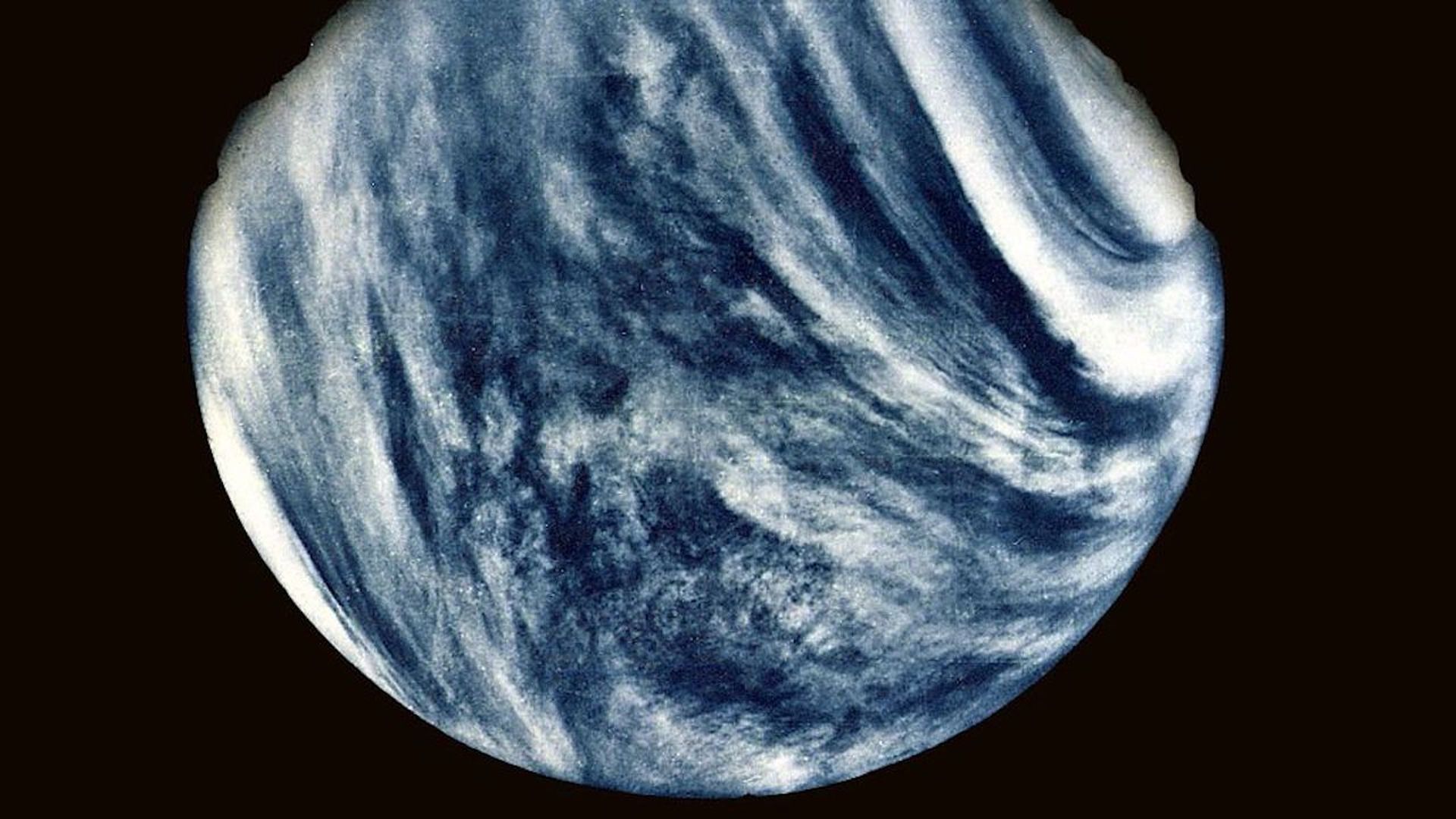
Venus is sometimes considered Earth’s "evil twin," and yet we know frustratingly little about it, creating a blind spot in our own history.
The big picture: NASA has prioritized Mars, Earth's other sibling planet. The space agency has launched more than a dozen spacecraft to study the red world over the past 30 years and is planning to eventually send humans there. Meanwhile, in that time, NASA only launched one dedicated mission — Magellan — to Venus.
- "We had three chances on our solar system — Venus, Earth and Mars — and only Earth could provide a prolonged habitable environment," Ellen Stofan, former chief scientist at NASA, tells Axios via email.
- "So the big question is — Was Venus ever habitable, and for how long? This can provide a real basis for us to understand the likelihood of other Earths as we start to gather more and more data on solar systems beyond our own."
Details: The missions that have studied Venus, including spacecraft from other nations, provided tantalizing clues. Future missions could help us learn more about the past and future of our own solar system and better characterize planets far from our sun.
- Scientists think it's possible Venus was the first habitable planet in our solar system, with liquid water on its surface for many millions of years. New missions could confirm this.
- Venus' oceans boiled away as it became the hot, inhospitable world we see today due to a runaway greenhouse effect — a cautionary tale given human-caused climate change on Earth.
- Previous missions to Venus revealed volcanoes and hints of plate tectonics.
- Some researchers have even suggested features of Venus' clouds, which are largely comprised of sulfuric acid, could actually be caused by microbial life that can survive in extreme environments, though that's far from a sure thing.
Meanwhile: As NASA focuses on Mars, the Moon and more distant objects, international space agencies are looking to Venus.
- Japan's Akatsuki spacecraft is orbiting Venus, beaming home information about its atmosphere after a somewhat harrowing journey to the second planet from the sun.
- Russia and India have Venus missions in the works as well.
- In fact, according to NASA scientist Suzanne Smrekar, there's something of a "surge" in Venus research these days by comparison to decades past in part thanks to Akatsuki and Europe's Venus Express mission that ended in 2014.
- However, the amount of Venus research today still pales by comparison to Mars.
What's next: In the early 2020s, scientists will get another chance to make their case that Venus is worthy of its own NASA mission.
- Technological advancements could allow a lander to survive on Venus' hot, high-pressure surface for up to 60 days, far more than the previous two-hour record, according to Lori Glaze, head of NASA's planetary science division.
Mars is Earth's more popular little brother
One of the underlying reasons for the disparity in Mars vs. Venus missions might be that the rocky, red planet has captured our collective imagination in ways that Venus — with its thick cloud cover and over 800°F surface temperatures — hasn't.
- "Ever since we learned how forbidding it is on the surface, I think there's been a little bit less of that kind of fantasy about going to Venus," planetary scientist David Grinspoon says.
- A crewed mission to Mars is viewed as more feasible, freeing us to imagine going there one day.
Why it matters: Science fiction novels and films depict Mars colonies, and permanent Mars settlements are a goal of billionaire space entrepreneurs like Elon Musk. NASA is aiming to send humans to Mars by the 2030s.
- How we think about a world in fiction affects how the public understands it. And we think about Mars as playing a role in our transition to a multi-planetary species.
The backdrop: In the late 1800s and early 1900s, Percival Lowellpopularized the idea that long canals on the Martian surface were the vestiges of an intelligent civilization. While Lowell's explanation turned out to be wrong, he helped bring those ideas to the public. And since then, our obsession has only grown.
- Today, there are hundreds of movies, TV shows and books related to the planet and our future on it, including "The Martian," "The Expanse" and "The First."







